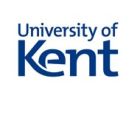Chemistry
Chemistry is the scientific discipline involved with compounds composed of atoms, i.e. elements, and molecules, i.e. combinations of atoms: their composition, structure, properties, behavior and the changes they undergo during a reaction with other compounds. Chemistry addresses topics such as how atoms and molecules interact via chemical bonds to form new chemical compounds. There are four types of chemical bonds: covalent bonds, in which compounds share one or more electron(s); ionic bonds, in which a compound donates one or more electrons to another compound to produce ions (cations and anions); hydrogen bonds; and Van der Waals force bonds.
Delivery
Delivery may refer to:
Drug
A drug is any substance (other than food that provides nutritional support) that, when inhaled, injected, smoked, consumed, absorbed via a patch on the skin, or dissolved under the tongue causes a temporary physiological (and often psychological) change in the body.
Drug Delivery
Drug delivery refers to approaches, formulations, technologies, and systems for transporting a pharmaceutical compound in the body as needed to safely achieve its desired therapeutic effect. It may involve scientific site-targeting within the body, or it might involve facilitating systemic pharmacokinetics; in any case, it is typically concerned with both quantity and duration of drug presence. Drug delivery is often approached via a drug's chemical formulation, but it may also involve medical devices or drug-device combination products. Drug delivery is a concept heavily integrated with dosage form and route of administration, the latter sometimes even being considered part of the definition.
Pharmacy
Pharmacy is the science and technique of preparing and dispensing drugs. It is a health profession that links health sciences with chemical sciences and aims to ensure the safe and effective use of pharmaceutical drugs.
Chemistry
Just think of the differences today. A young person gets interested in chemistry and is given a chemical set. But it doesn't contain potassium cyanide. It doesn't even contain copper sulfate or anything else interesting because all the interesting chemicals are considered dangerous substances. Therefore, these budding young chemists don't get a chance to do anything engrossing with their chemistry sets. As I look back, I think it is pretty remarkable that Mr. Ziegler, this friend of the family, would have so easily turned over one-third of an ounce of potassium cyanide to me, an eleven-year-old boy.
Linus Pauling In His Own Words (1995) by Barbara Marinacci, p. 29
Chemistry
I was an atheist, finding no reason to postulate the existence of any truths outside of mathematics, physics and chemistry. But then I went to medical school, and encountered life and death issues at the bedsides of my patients. Challenged by one of those patients, who asked "What do you believe, doctor?", I began searching for answers.
Francis Collins, a geneticist who led the U.S. government’s effort to decipher the human genome (DNA). cnn.com
Chemistry
Chemists usually write about their chemical careers in terms of the different areas and the discrete projects in those areas on which they have worked. Essentially all my chemical investigations, however, are in only one area, and I tend to view my research not with respect to projects, but with respect to where I’ve been driven by two passions which I acquired in graduate school: I am passionate about the Periodic Table (and selenium, titanium and osmium are absolutely thrilling), and I am passionate about catalysis. What the ocean was to the child, the Periodic Table is to the chemist; new catalytic reactivity is, of course, my personal coelacanth.
K. Barry Sharpless, Nobel lecture, 2001
